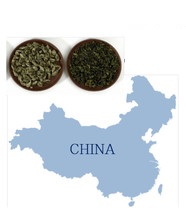Quantification of Polyphenols and Metals in Chinese Tea Infusions by Mass Spectrometry.
Pinto G, Illiano A, Carpentieri A, Spinelli M, Melchiorre C, Fontanarosa C, Di Serio M, Amoresano A.
Abstract
Chemical compounds within tea (Camellia sinensis) are characterized by an extensive heterogeneity; some of them are crucial for their protective and defensive role in plants, and are closely connected to the benefits that the consumption of tea can provide. This paper is mainly focused on the characterization of polyphenols (secondary metabolites generally involved in defense against ultraviolet radiation and aggression by pathogens) and metals, extracted from nine Chinese tea samples, by integrating different mass spectrometry methodologies, LC-MS/MS in multiple reaction monitoring (MRM) and inductively coupled plasma mass spectrometry (ICP-MS). Our approach allowed to identify and compare forty polyphenols differently distributed in tea infusions at various fermentation levels. The exploration of polyphenols with nutraceutical potential in tea infusions can widely benefit especially tea-oriented populations. The worldwide consumption of tea requires at the same time a careful monitoring of metals released during the infusion of tea leaves. Metal analysis can provide the identification of many healthy minerals such as potassium, sodium, calcium, magnesium, differently affected by the fermentation of leaves. Our results allowed us: (i) to draw up a polyphenols profile of tea leaves subjected to different fermentation processes; (ii) to identify and quantify metals released from tea leaves during infusion. In this way, we obtained a molecular fingerprint useful for both nutraceutical applications and food control/typization, as well as for frauds detection and counterfeiting.

